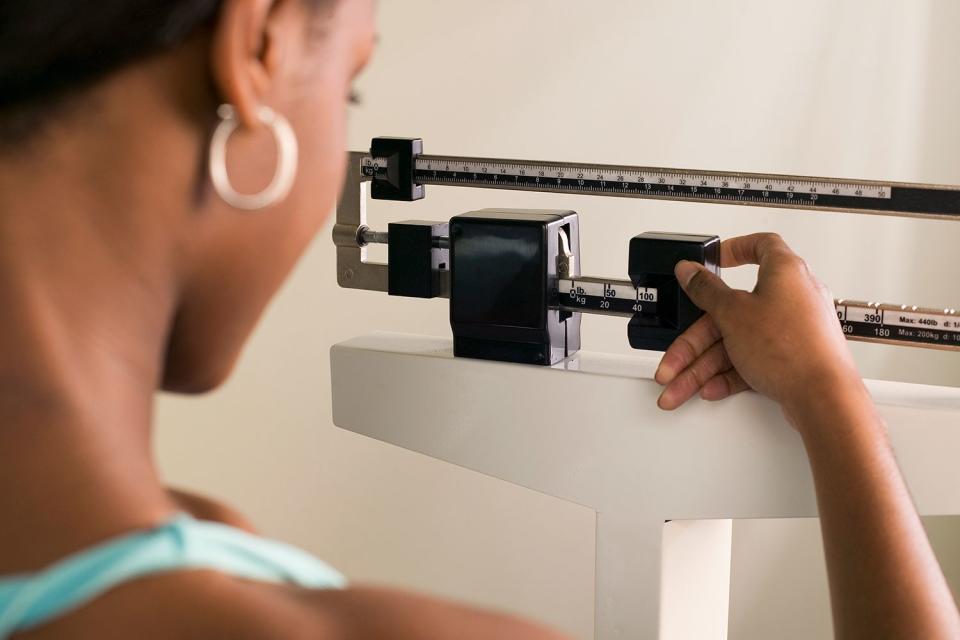Why You’re Gaining Weight in Menopause: Our Expert on What You Should Know
For many women going through menopause, hormones and lifestyle changes make it difficult to avoid extra pounds

Getty
Many women have difficulty controlling menopause symptoms.Typically, women gain 1.5 lbs. a year as they transition to menopause, and weight gain can begin seven to 10 years before the onset (which, on average, happens at age 51).
Changes in estrogen during perimenopause slow metabolism, and fat redistributes to the belly region, so maintaining an active lifestyle is critical, says Dr. Monica Christmas, director of University of Chicago’s Menopause Program and the Center for Women’s Integrated Health.
“We change as we age, but think, ‘How can I be my best possible self ?’ ” says Dr. Christmas. “Be meticulous about how you fuel your body and intentional about how you move your body.”
Why do women often gain weight in menopause?
“The fluctuation in hormones during menopause not only triggers changes in metabolism but also to mood. You may feel more irritable, anxious, depressed,” says Dr. Christmas. “People say, ‘I don’t have energy.’ If your metabolism slows, and you have less energy to exercise, that leads to weight gain.”
Never miss a story — sign up for PEOPLE's free daily newsletter to stay up-to-date on the best of what PEOPLE has to offer, from celebrity news to compelling human interest stories.

Craig Barritt/Getty
Paulina Porizkova has spoken out about menopause.Related: Paulina Porizkova Gets Candid About Aging: ‘I Am the Best That I’ve Ever Been’ (Exclusive)
If it’s just a few pounds, why is it a health issue?
“We lose muscle tone as we get older, and that’s accelerated in menopause, and it’s replaced by fatty tissue. Much of that fat ends up depositing in the mid-section. That’s probably the worst place for it to go, not just because of aesthetics, but because all of our vital organs are there. It means more fat around your heart, your kidneys, your liver.”
Can hormone replacement therapy help?
“HRT should not be prescribed for weight loss because it doesn’t work for that. But if you’re having debilitating hot flashes, night sweats, things that wake you up at night so you’re not feeling rested, you won’t have any energy to exercise. If we correct that, and you sleep better, you’re more likely to exercise and eat well. So it’s almost a byproduct.”

Gotham/GC Images
Gabrielle Union has openly discussed going through menopause.Are weight-loss drugs a solution?
“They can be appropriate for people that have already made the healthy lifestyle choices — they’re exercising regularly, they’re eating well but still haven’t reached their goals, or if they have other medical issues like diabetes. But most of those medications you have to take forever, otherwise the weight comes back, especially if you haven’t changed anything else.”
What’s the best way to control weight gain?
“If we compare our 50-year-old selves to our 25-year-old selves, we’re never going to win. I tell people, ‘Let’s be our healthiest selves.’ Do something you enjoy every day so it’s sustainable. Ten minutes of exercise is better than no minutes. And weight gain doesn’t happen forever. It’s usually the couple years right before periods stop and a couple years after, and then it plateaus. It doesn’t keep going up and up.”
For more People news, make sure to sign up for our newsletter!
Read the original article on People.

